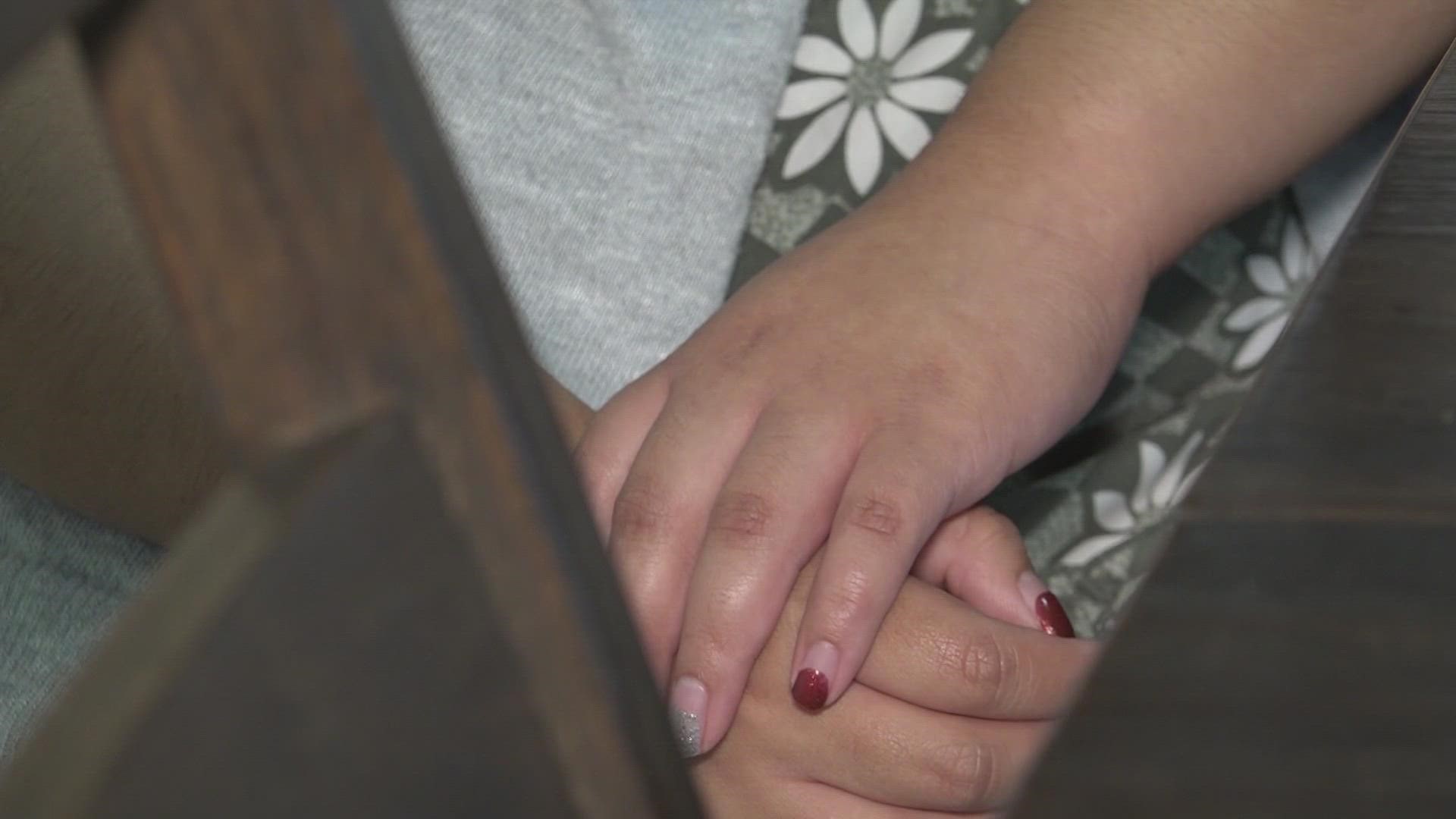SAN ANTONIO — Amber and her husband are still experiencing the emotional trauma of going through with an abortion they wish never had to happen. But they felt it was necessary upon learning of their child’s terminal birth defect. The abortion was not performed in Texas.
“We were really trying for a baby and holding onto a dead baby wasn’t going to get us anywhere,” said Amber, who requested KENS 5 only user her first name due to fear of judgement.
Amber suffers from polycystic ovary syndrome, a hormonal disorder that impacts the ability to become pregnant.
Amber was relieved to learn she was pregnant in the fall of 2021. Over the course of her pregnancy, she experienced multiple bleeding episodes. At one point, she had to be rushed to the hospital because of severe bleeding and a tear in her placenta lining.
The bleeding ceased 11 weeks in, which was accompanied by welcoming news that Amber was expecting a boy she decided to name Michael.
There came a time during the 16th week of pregnancy when Amber met with a high-risk doctor who revealed her child had a lethal birth defect.
“He goes straight for Michael’s head and he says that my baby has anencephaly. He says that my pregnancy is not viable and that it was a lethal pregnancy and that my baby has no brain and no skull,” Amber said.
Amber noted she made the tough decision to seek an abortion 15 seconds after hearing the doctor reveal the diagnosis of Michael’s neural tube defect and zero chance of survival.
“At this point, Texas had started their six-week heart beat bill and there was not many exemptions to the rule,” Amber said.
She heard about abortion clinic options in neighboring Oklahoma. But she would quickly learn how difficult it was to book prompt appointments.
Trust Women is among the handful of abortion clinics in Oklahoma that endured the impacts of SB 8 and surging demand for abortion services from Texas women.
“I called Oklahoma and they were so backed up that they didn’t think it was possible to see me. The soonest appointment they had was late December,” she said.
Amber ended up scheduling an appointment a clinic in Albuquerque, N.M. She was provided medication the day before the abortion to stop Michael’s heartbeat.
October 27 is the day doctors performed the procedure. Amber never got the chance to see Michael but clinicians did provide her with images of his hand and feet prints.
Amber and her husband have since attended counseling sessions, coping through the anxiety and grief of losing Michael, a boy who a doctor said was not capable of living.
“He was traumatized just like me with a baby that we really planned for and that we really wanted. It’s just been really hard for both us,” she said.
Michael’s cremated ashes now rest in an angelic urn with his name inscribed across the base.
Amber had been preparing for a long life with her son.
“All of his clothes is still here, his stuffed animals that we bought. His books, I would read to him a lot. He would kick like crazy,” Amber said.
The Supreme Court’s overturning of Roe v. Wade has reignited fear among women nationwide as it relates to abortion access.
Non-profit organizations such as Fund Texas Choice and the Lilith Fund have halted direct financial assistance to clients needing abortion care due to Roe’s reversal and concerns about criminal liability.
“Women who are poor, who are not financially stable aren’t going to have those options. They’re not going to be able to up and say they’ll fly across the country to get an abortion and I feel like this was a hit at women’s bodily autonomy.”
Amber’s chances of getting pregnant initially were already slim due to PCOS, but she worries what will happen if she ends up in a similar situation.
She and her husband have even discussed the idea of moving out of Texas to a state where women's reproductive freedoms aren't restricted.

